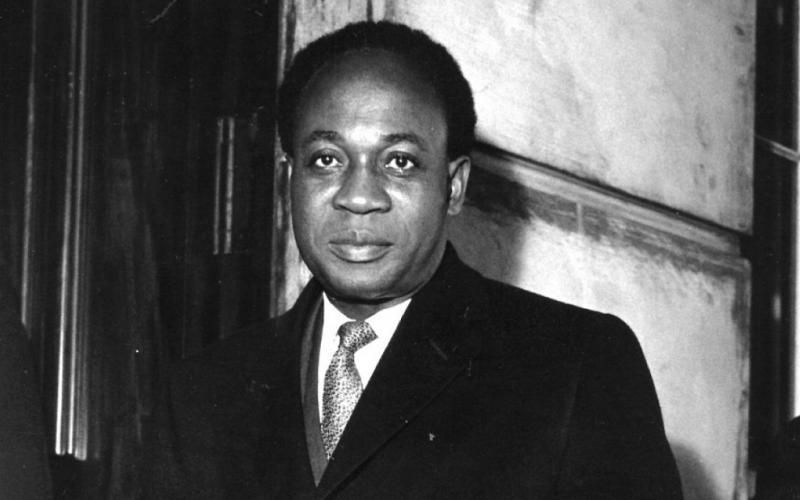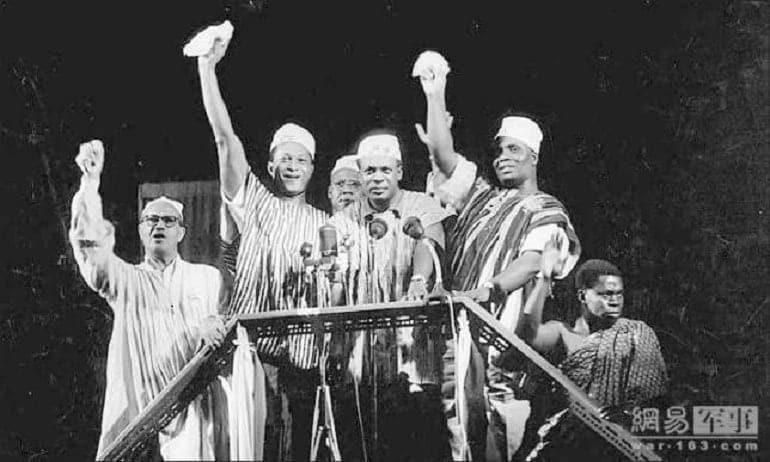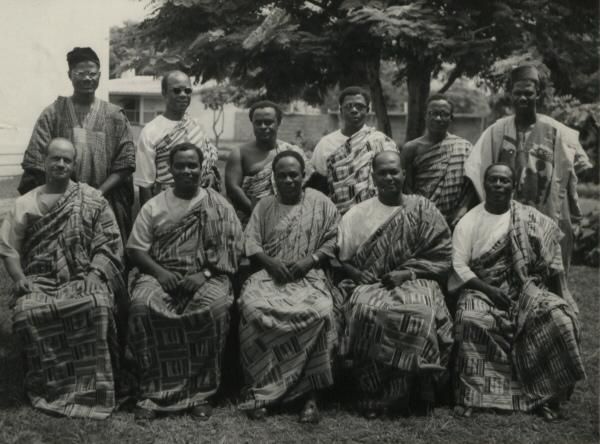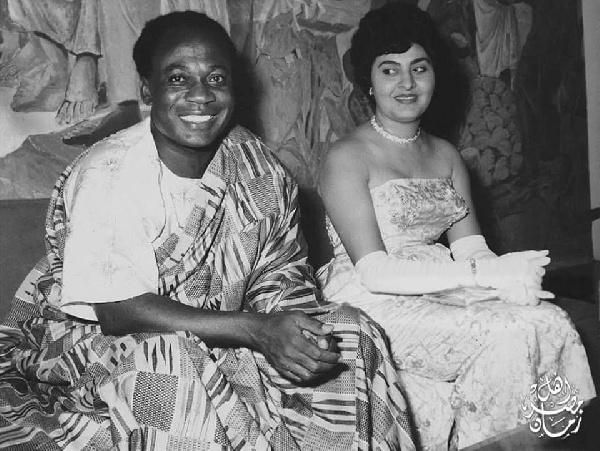Ghana Month: The life of Dr. Kwame Nkrumah, from prison to President
)
The campaign is to primarily project the country's indigenous products and services as well as celebrate its rich cultural heritage.
To mark this year's celebration, Pulse Ghana chose to highlight the contributions of all members of the 'Big Six' whose efforts culminated in the declaration of independence from colonial rule on 6th March, 1957.
The Big 6 include:
- Kwame Nkrumah
- Ako Adjei
- Edward Akufo-Addo
- Joseph Boakye Danquah
- Emmanuel Obetsebi Lamptey
- William Ofori Atta
Today, Pulse.com.gh writes on the profile of Dr. Kwame Nkrumah.
Dr. Kwame Nkrumah (1909-1972) was a distinguished Ghanaian statesman, nationalist leader, and pan-Africanist who played a pivotal role in the decolonization of Africa and the establishment of the Republic of Ghana. Born in Nkroful, Gold Coast (now Ghana) in September 1909, Nkrumah's life journey reflects his unwavering commitment to the ideals of independence, self-determination, and African unity.

Early life and education:
Nkrumah, the son of a goldsmith and a retail trader, experienced a humble upbringing.
His early education at a Roman Catholic elementary school in Half Assini laid the foundation for a lifelong connection to education and intellectual pursuits.
After graduating from Achimota College in 1930, Nkrumah embarked on a career as a teacher, initially in Elmina and Axim, and later at a seminary.
Political awakening:
Driven by a growing interest in politics, Nkrumah decided to pursue further studies in the United States.
In 1935, he enrolled at Lincoln University in Pennsylvania, where he delved into the literature of socialism, studying the works of Karl Marx and Vladimir Lenin.
His exposure to the ideas of Marcus Garvey, a prominent Black American leader of the 1920s, further fueled his commitment to nationalist principles.

Political activism and Pan-African leadership:
Nkrumah's time in the U.S. was marked by active involvement in political work. He reorganized and became the president of the African Students' Organization of the United States and Canada.
His return to England in 1945 saw him organizing the 5th Pan-African Congress in Manchester, demonstrating his dedication to the broader cause of African liberation.
Leadership in Ghana's independence movement:
Returning to the Gold Coast in 1947 after twelve years abroad, Nkrumah assumed a central role in the push for national independence.
Initially serving as the general secretary of the United Gold Coast Convention (UGCC), he later founded the Convention Peoples' Party (CPP) in 1949.
The CPP's commitment to immediate self-government resonated with the populace, leading to widespread support.
First Prime Minister and President of Ghana:
Following a series of protests and political actions, Ghana achieved independence from British rule in 1957, with Nkrumah becoming the new nation's first prime minister.
In 1960, he successfully campaigned for Ghana to become a republic, and he assumed the presidency with extensive legislative and executive powers under a new constitution.

Challenges and economic policies:
Nkrumah's leadership style evolved towards a more authoritarian approach, accompanied by ambitious but often financially burdensome development projects.
Economic challenges, a rising foreign debt, and the abandonment of the Second Development Plan in 1961 led to labor unrest and a general strike.
One-party state and ouster:
In 1964, Ghana officially became a one-party state with Nkrumah as its life president. However, internal strife, corruption, and economic woes continued to escalate.
During Nkrumah's absence in Beijing in 1966, a military coup seized power in Ghana, marking the end of his political reign.

Legacy:
Kwame Nkrumah's legacy endures as a symbol of African nationalism, anti-colonialism, and pan-Africanism.
Despite the challenges and controversies of his political career, he remains an influential figure in Ghanaian and African history.
His vision for a united and self-reliant Africa continues to inspire generations of leaders committed to the continent's progress and independence.
)
)
)
)
)
)
)
)